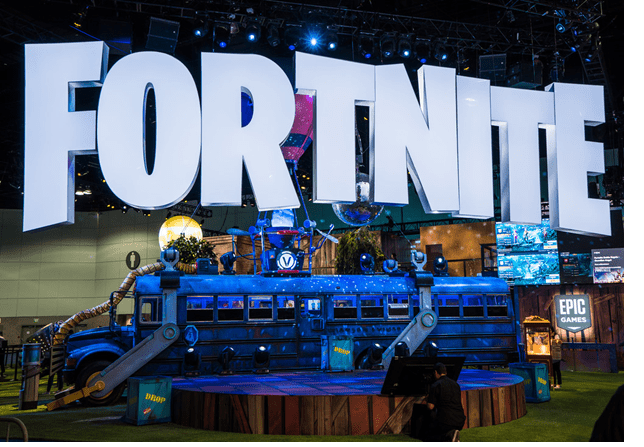A federal district court in California has dismissed a choreographer’s claims against Epic Games Inc. based on dance moves in Epic’s Fortnite video game.
Plaintiff Kyle Hanagami is a professional choreographer and dance instructor in Los Angeles. In 2017, he published a five-minute YouTube video of himself and others dancing to the song “How Long” by Charlie Puth using his choreography.
Hanagami registered his video with the US Copyright Office in 2021 as a work of choreography.
As the Copyright Office notes,
The Copyright Act provides in section 102(a)(4) for copyright protection in “pantomimes and choreographic works” created after January 1, 1978, and fixed in some tangible medium of expression.1 Choreography is the composition and arrangement of a related series of dance movements and patterns organized into a coherent whole. Pantomime is the art of imitating, presenting, or acting out situations, characters, or events through the use of physical gestures and bodily movements. Choreography and pantomimes consisting of ordinary motor activities, social dances, commonplace movements or gestures, or athletic movements may lack a sufficient amount of authorship to qualify for copyright protection.
Further, says the Copyright Office,
Common elements of choreography include
• Rhythmic movements of one or more dancers’ bodies in a defined sequence and a defined spatial environment, such as a stage
• A series of dance movements or patterns organized into an integrated, coherent, and expressive compositional whole
• A story, theme, or abstract composition conveyed through movement
• A presentation before an audience
• A performance by skilled individuals
• Musical or textual accompaniment
As the court’s order notes, Epic Games develops and distributes video games, including Fortnite, a free-to-play multiplayer shooting game.
Fortnite offers an in-game marketplace, called the “Item Shop,” where players can buy virtual currency to buy virtual customizations for their in-game characters.
These customizations include clothes, weapons, and “emotes.” An emote is an animated movement or dance.
The emote at issue in the case is the “It’s complicated” dance. Plaintiff alleged that this contained the most recognizable elements of his registered work of choreography.
Plaintiff’s attorney provided a video showing the dance moves side-by-side. The judge agreed that ten of the poses in the video and the emote are the same.
However, the judge concluded that the Plaintiff’s dance steps are individual poses that, together, constitute mere “building blocks for a choreographer’s expression” and thus are not protectable on their own.
According to the court,
Choreographic works are based on a myriad of creative elements, including rhythmic movement in a defined space, compositional arrangement, musical or textual accompaniment, dramatic content, presentation before an audience, and execution by skilled performance.
Here, found the court, the two works are not substantially similar, because other than four identical counts of poses – which are unprotected alone – the works don’t share any creative elements.
The court continued:
The two works contain a series of different poses performed in different settings and by different types of performers: Plaintiff’s dance is performed by humans in the physical world, and Defendant’s Emote by animated characters in a virtual world. The works are performed for different audiences, as Plaintiff’s video was performed at Plaintiff’s dance studio and published for a YouTube audience. Defendant’s Emote is performed by Fortnite players in-game for an in-game audience. Beyond the Steps, Plaintiff identifies no other similar creative elements in Plaintiff and Defendant’s choreographic works.
As The Gamer reported,
Epic Games has come under fire previously for allegedly copying 2Milly’s Milly Rock dance move with the emote Swipe It, and Alfonso Ribeiro said that Epic stole the Carlton dance from The Fresh Prince of Bel-Air.
Just like the haiku above, we like to keep our posts short and sweet. Hopefully, you found this bite-sized information helpful. If you would like more information, please do not hesitate to contact us here.


